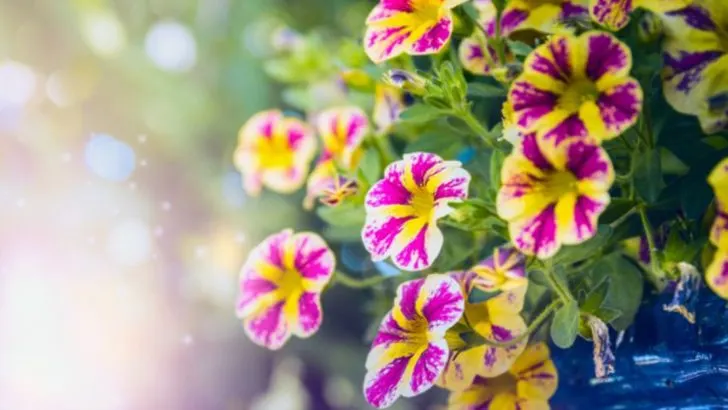Companion planting is a natural way to protect your roses from pests while enhancing their growth and beauty. The right companion plants can deter harmful insects, attract beneficial pollinators, and improve the overall health of your rose garden. Here are 18 pest-repelling companion plants for roses that will help create a thriving, vibrant garden. From aromatic herbs to vibrant flowers, these companions can enhance your roses while keeping pesky pests at bay.
Lavender
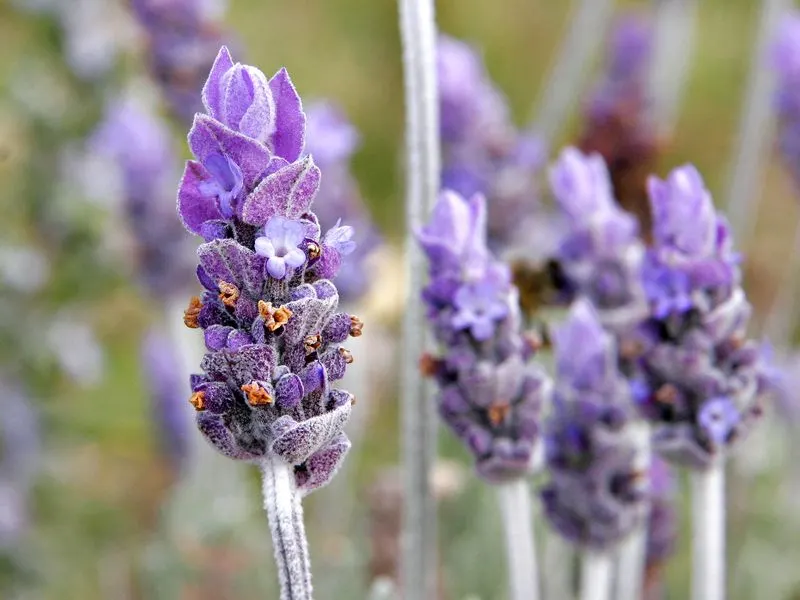
Known for its soothing scent, lavender is a powerhouse against aphids when planted near roses. Its aromatic oils repel various pests, ensuring your roses remain undisturbed. Additionally, its purple blooms create a stunning contrast against the rich hues of roses. Try planting lavender along the borders of your rose beds for a fragrant garden. Regular pruning will keep lavender lush and promote better air circulation, benefiting both plants. Enjoy the added bonus of attracting pollinators like bees, enhancing the ecosystem around your garden while keeping it pest-free.
Marigold
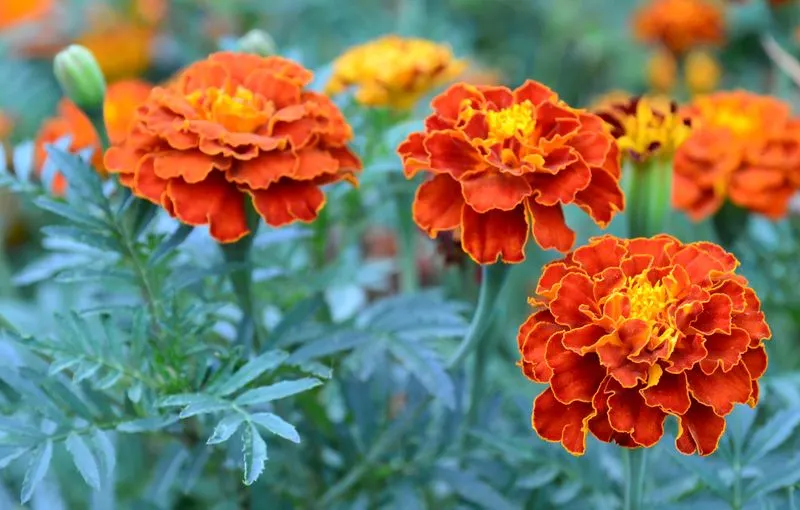
Marigolds are a gardener’s favorite for natural pest control. Their strong scent deters nematodes and other harmful insects from invading rose plants. As an added perk, marigolds’ vibrant colors provide a lively backdrop to any rose garden. Consider interplanting marigolds with your roses to optimize space and pest deterrence. These flowers thrive in full sun, which aligns perfectly with the needs of roses. Easy to grow and maintain, marigolds are a colorful, practical addition that supports the health and beauty of your roses.
Chives
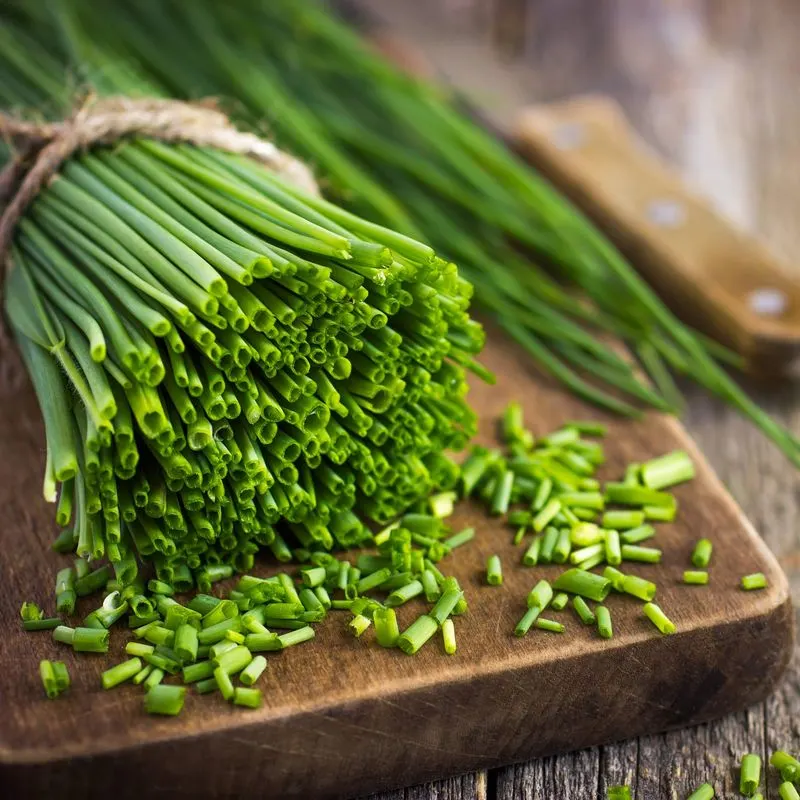
Chives bring more than just culinary delight; they’re excellent companions for roses. Their onion-like aroma is off-putting to pests like aphids and Japanese beetles. Plant chives at the base of roses to create a protective barrier while enjoying their delicate purple flowers. This hardy herb requires minimal care, making it a straightforward addition for any gardener. By incorporating chives, you not only safeguard roses but also add an edible element to your garden. Share the benefits with your kitchen or let the chives flourish as natural pest defenders.
Basil
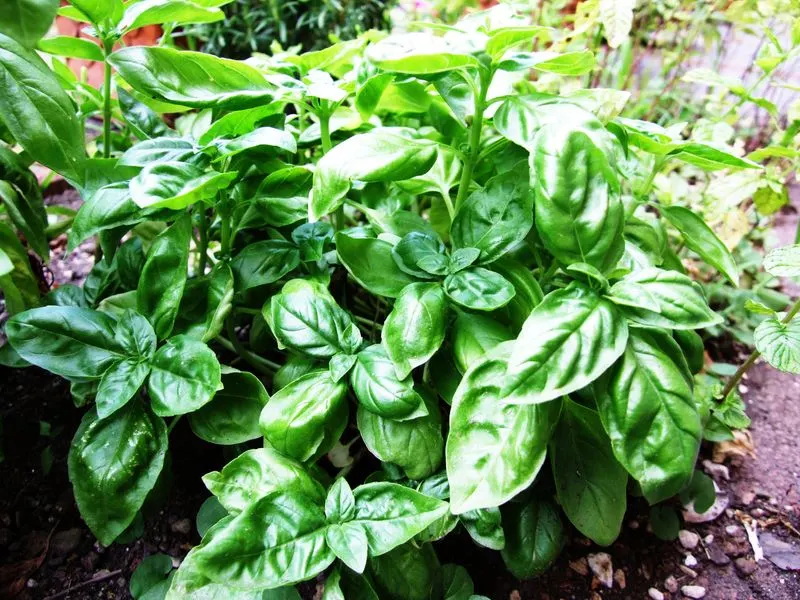
Basil is more than a kitchen staple; it’s a robust defender against insects like thrips and beetles when paired with roses. Its aromatic leaves exude a fragrance that pests dislike, providing a natural shield for your roses. Basil’s bright green foliage complements the vibrant blooms of roses, adding depth to your garden’s palette. Position basil plants close to your roses for optimal pest control. Besides its protective qualities, basil offers culinary delights, making it a versatile and beneficial garden ally for rose enthusiasts.
Garlic
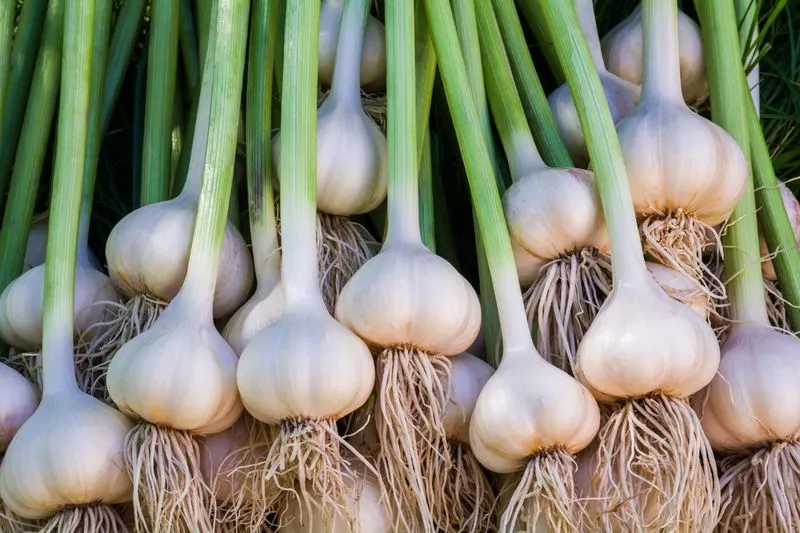
Garlic is renowned for its potent pest-repelling abilities. Its strong odor is an effective deterrent against aphids and other common rose pests. Plant garlic around the base of your rose bushes to form a natural protective ring. This aromatic bulb not only supports your roses but also contributes to your kitchen pantry. Minimal care is needed for garlic, making it an effortless addition. As it matures, enjoy both its pest-repelling benefits and the satisfaction of harvesting fresh garlic. A win-win for gardeners seeking natural solutions.
Mint
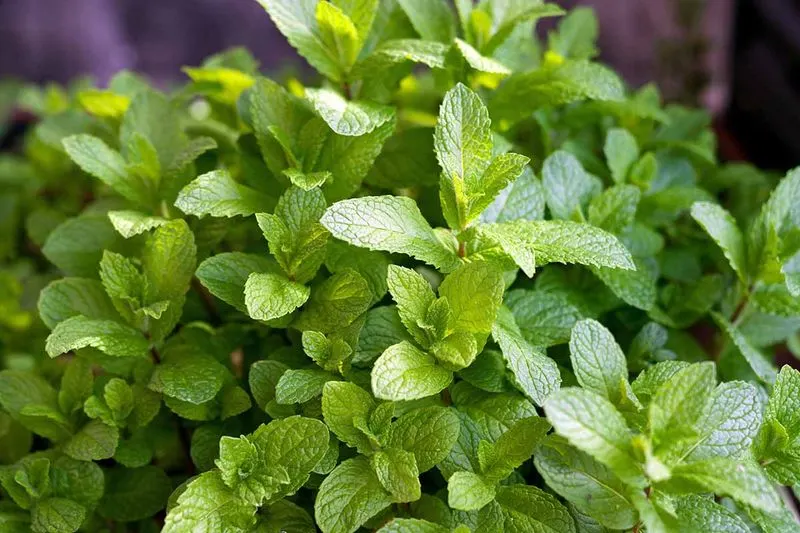
Mint’s refreshing scent is a delightful addition to any garden, and it excels at repelling pests like ants and aphids from roses. Its vigorous growth can provide effective coverage and protection. Plant mint in containers to control its spread and position them near rose beds. The aromatic leaves not only deter pests but also offer culinary uses. Whether you enjoy mint tea or use it to enhance dishes, this plant is a versatile companion. Mint’s resilience and ease of care make it a gardener’s ally in maintaining a healthy rose garden.
Tansy
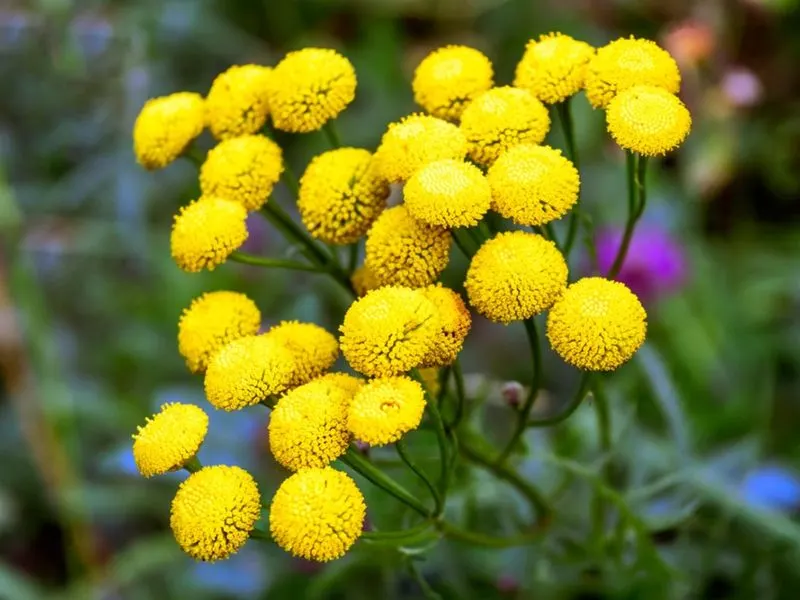
Tansy is a lesser-known but highly effective companion for roses. Its bright yellow flowers and fern-like foliage repel harmful insects, providing a natural shield. The scent of tansy is particularly off-putting to ants and beetles. Plant tansy at the perimeter of your rose garden to enhance its pest-repelling effectiveness. Tansy requires little maintenance and thrives in full sun, making it a practical choice for busy gardeners. Besides its protective role, tansy adds visual interest with its unique texture and vibrant color.
Coriander
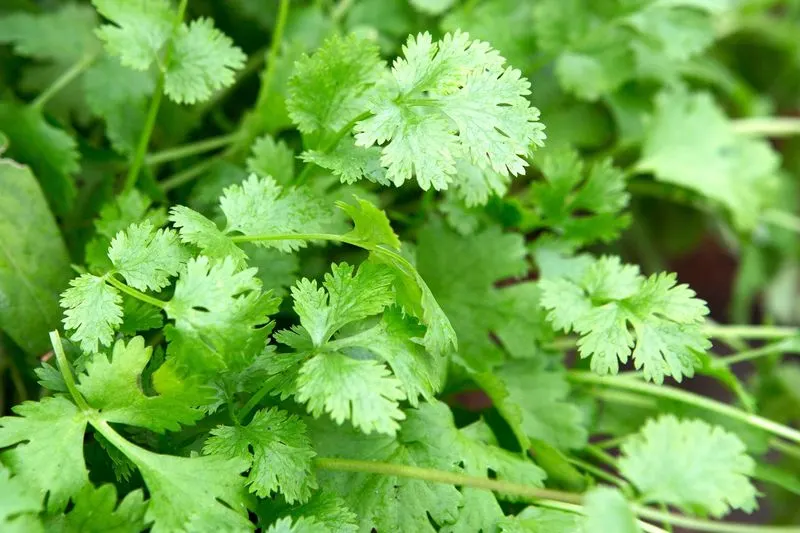
Coriander, known for its culinary uses, doubles as a pest deterrent in the garden. Its distinct aroma wards off aphids and spider mites from rose plants. Scatter coriander seeds around roses to establish a natural barrier. As it grows, this herb provides both protection and flavor for your kitchen. Coriander’s dual purpose makes it an attractive choice for gardeners looking to maximize their space. Regular harvesting encourages growth, ensuring a steady supply of fresh leaves while maintaining its pest-repelling properties.
Catnip
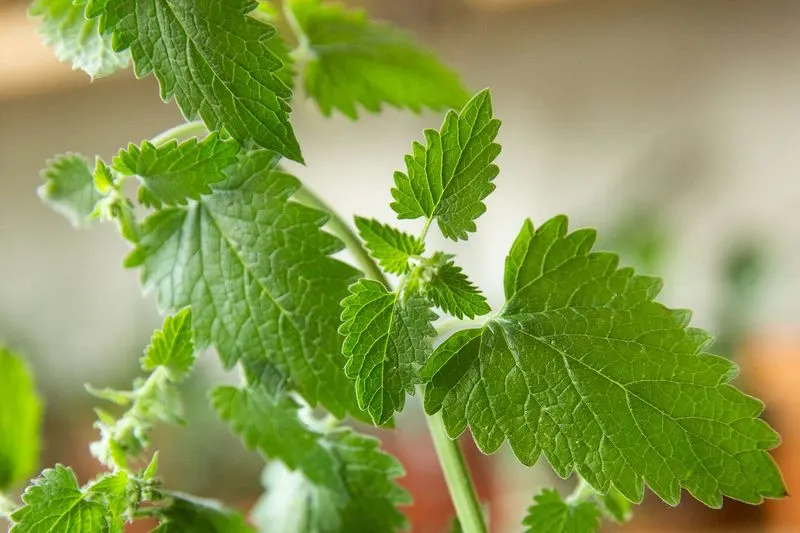
Catnip is not just for feline friends; it’s a formidable ally in the garden too. Known for repelling aphids, flea beetles, and ants, catnip is an effective companion for roses. Its minty aroma is a natural deterrent, keeping pests at bay. Plant catnip near your rose bushes for added protection. Easy to grow, this hardy plant requires minimal attention. While it keeps pests away, it may attract neighboring cats, so consider placement if this is a concern. A playful yet practical addition to any rose garden.
Thyme
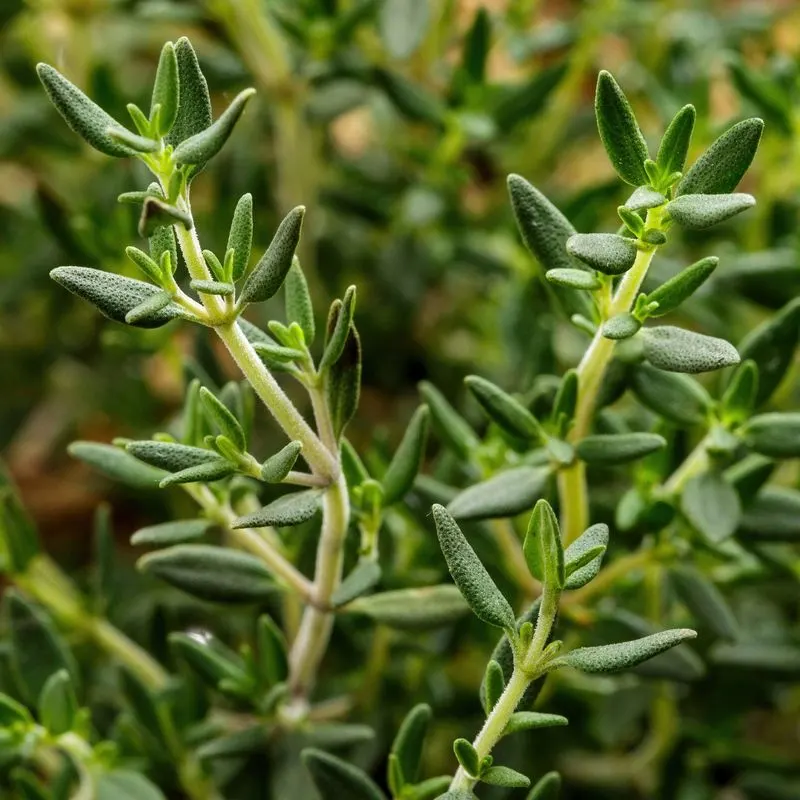
Thyme brings more than savory flavors to the table; it’s a beneficial companion for roses. Its aromatic leaves repel caterpillars and other insects that threaten rose health. Plant thyme at the base of rose bushes to create a fragrant, protective barrier. This low-growing herb complements the aesthetic of roses while offering culinary uses. The easy-care nature of thyme makes it ideal for gardeners seeking simplicity. Beyond pest control, enjoy the culinary delights thyme adds to your kitchen endeavors, making it a versatile garden favorite.
Yarrow
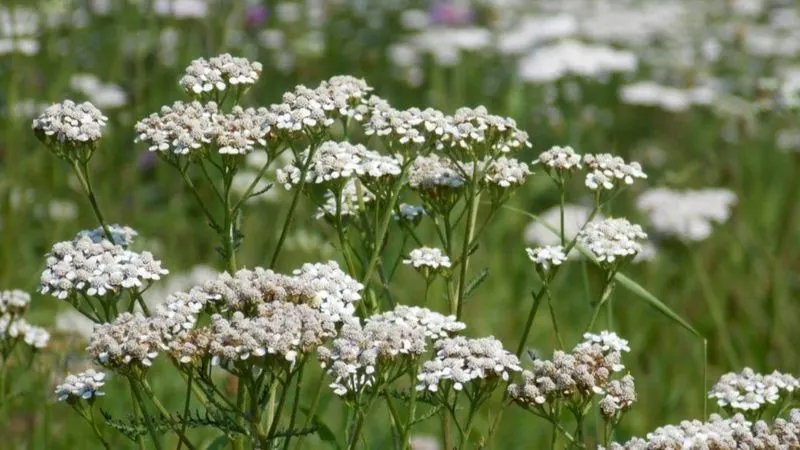
Yarrow’s delicate blooms and feathery foliage make it an appealing addition to any rose garden. It attracts beneficial insects like ladybugs, which feast on aphids, helping to maintain a balanced ecosystem. Plant yarrow interspersed with roses to promote healthy growth and pest control. This drought-tolerant plant thrives in similar conditions as roses, making them ideal companions. Its colorful flowers add visual interest while serving a practical purpose. By fostering a habitat for beneficial insects, yarrow supports the overall health of your rose garden.
Rue
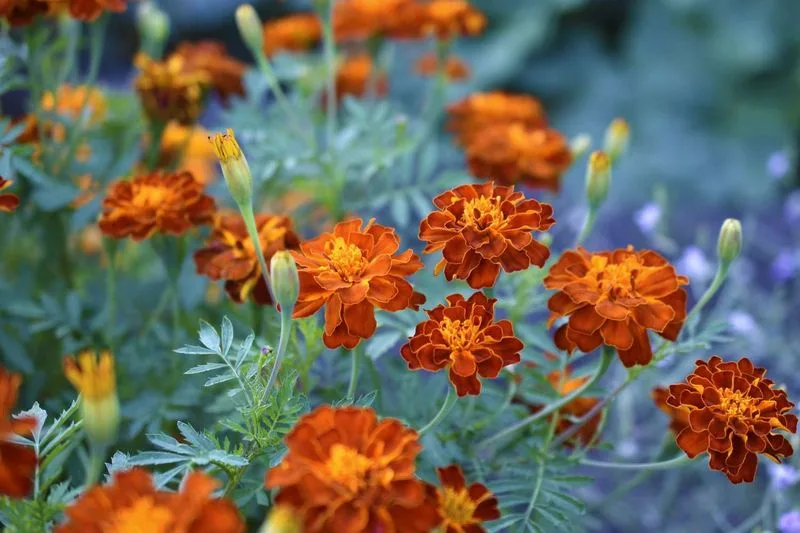
Rue is distinguished by its unique blue-green foliage and pungent aroma, serving as an effective deterrent against rose pests like aphids and slugs. Its strong scent drives away unwanted insects, keeping your garden healthier. Plant rue near your roses, but handle with care as its oils can irritate the skin. This hardy plant thrives in sunny locations and requires minimal maintenance, making it a practical choice for gardeners. Its distinctive appearance adds contrast and texture to rose gardens, enhancing both function and form.
Onions
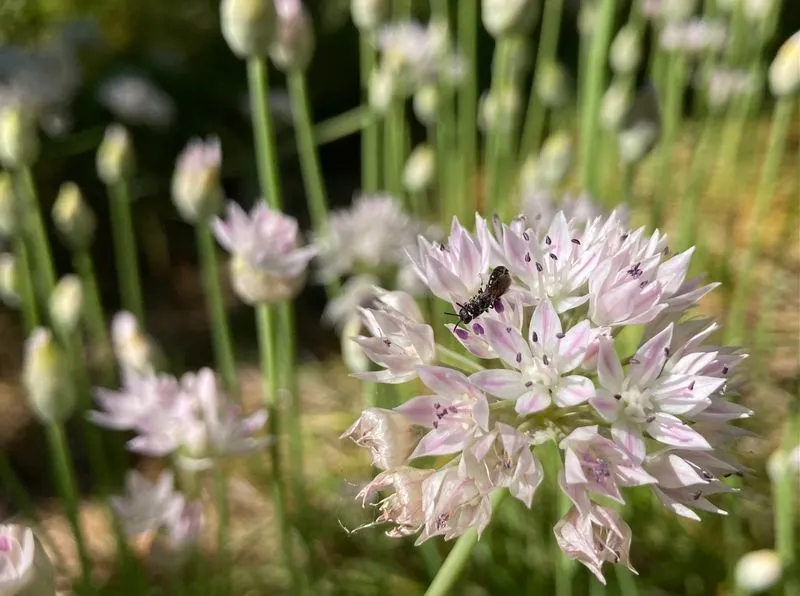
Onions serve dual purposes in the garden, acting as both a kitchen staple and a pest repellent. Their pungent aroma deters aphids and other insects from roses, providing a natural defense. Plant onions around the base of your rose bushes to maximize their protective benefits. These versatile bulbs are easy to grow and require little intervention, allowing gardeners to enjoy their culinary and pest-repelling advantages. Integrating onions into your rose garden supports a healthier ecosystem while adding flavor to your meals.
Dill
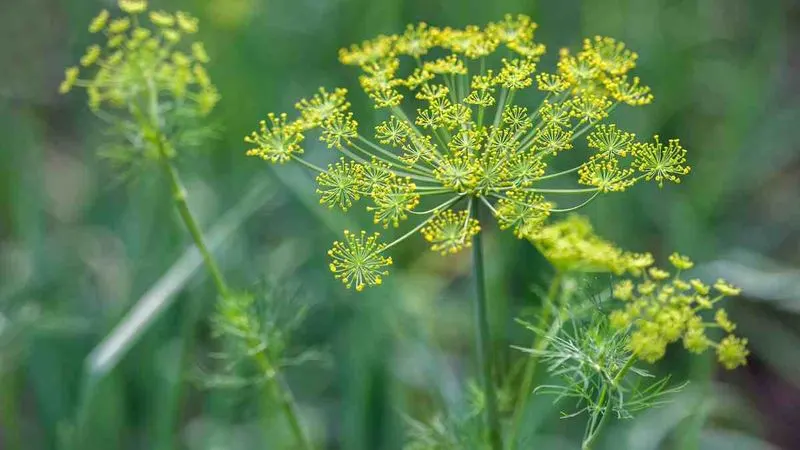
Dill is not just for pickling; it’s a valuable addition to rose gardens. Its tall fronds provide shade and repel pests like aphids and spider mites. Plant dill near rose bushes to harness its protective qualities. This herb thrives in well-drained soil, making it compatible with rose cultivation. Besides its pest control benefits, dill attracts beneficial insects like predatory wasps, enhancing the garden’s biodiversity. With its airy presence, dill adds a dynamic element to the garden, supporting roses while offering culinary delights.
Borage
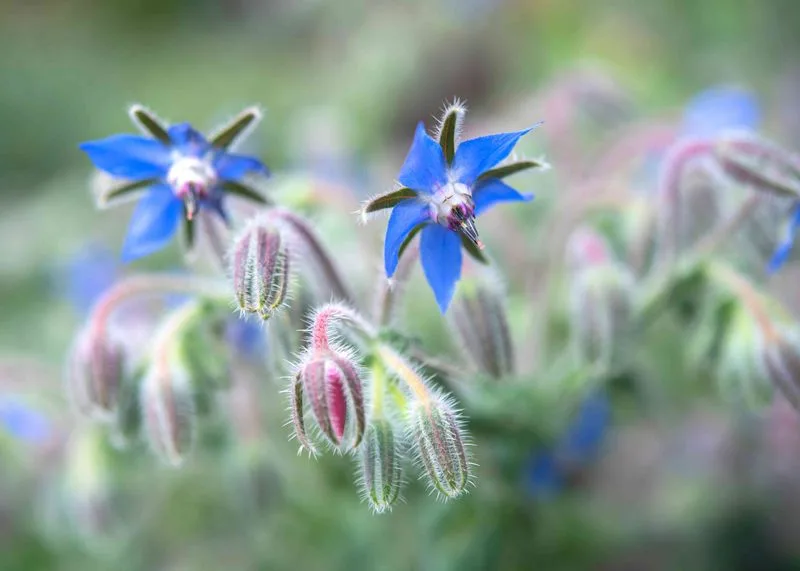
Borage is celebrated for its beautiful star-shaped flowers and pest-repelling properties. This plant attracts pollinators while deterring tomato hornworms and other pests that affect roses. Plant borage near roses to create a natural defense system. Its vibrant blue flowers add a pop of color and interest to the garden, complementing the elegance of roses. Borage’s low maintenance needs make it a great choice for gardeners of all levels. Enjoy the aesthetic and protective benefits that borage brings, enhancing the vitality of your rose garden.
Petunias
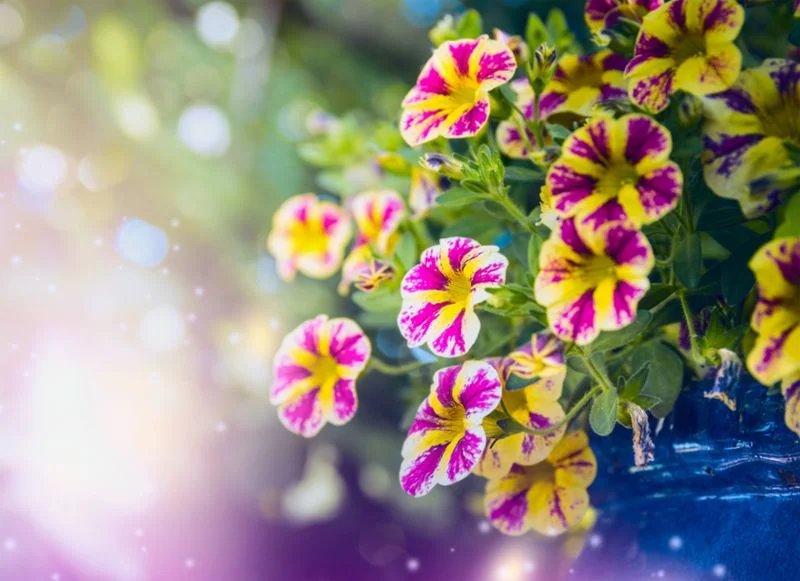
Petunias are more than ornamental; they’re effective pest deterrents too. Their presence keeps away aphids and leafhoppers, common rose adversaries. Plant petunias around your rose bushes to add color and protection. These flowers thrive in similar conditions, enjoying full sun and well-drained soil. Offering a variety of colors, petunias enhance the visual appeal of your garden. Their easy maintenance and robust nature make them a favorite among gardeners. By pairing petunias with roses, you not only elevate beauty but also ensure a healthier garden environment.
Sage
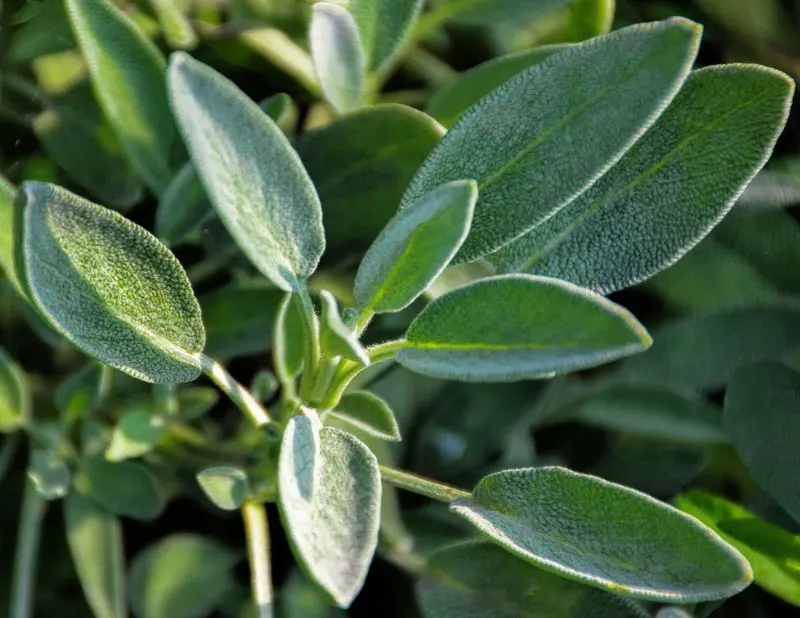
Sage, with its earthy aroma, is a worthy addition to rose gardens. Its strong scent repels a variety of pests, including cabbage moths and beetles. Plant sage near your roses to create a natural pest barrier. This herb thrives in sunny conditions, aligning with the needs of roses, and requires minimal care. Beyond its protective role, sage offers culinary uses, providing both flavor and pest control. Consider incorporating sage into your garden to enrich the landscape and support the health of your roses through natural means.
Nasturtiums
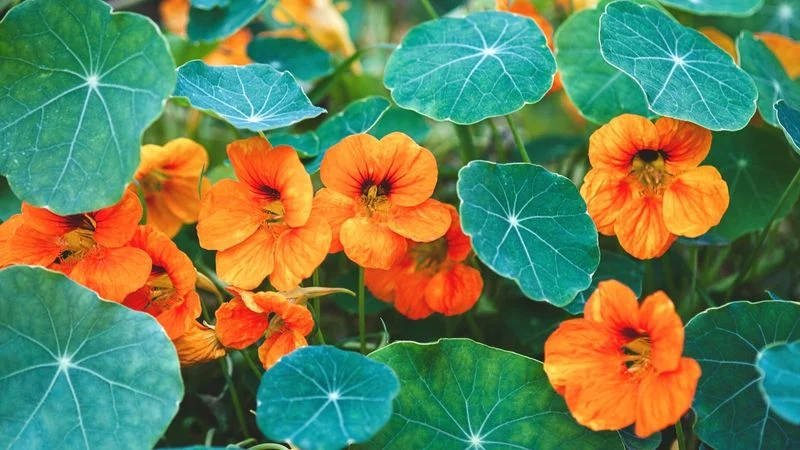
Nasturtiums are vibrant companions that protect roses from aphids and whiteflies. Their trailing nature and colorful blooms make them aesthetically pleasing and functional. Plant nasturtiums around the base of rose bushes to deter pests naturally. These flowers thrive in similar conditions, needing full sun and well-drained soil. As a bonus, nasturtiums are edible, offering peppery-flavored leaves and flowers for culinary use. Their low maintenance and high impact make them excellent allies in the garden, supporting both the beauty and health of your rose bushes.

